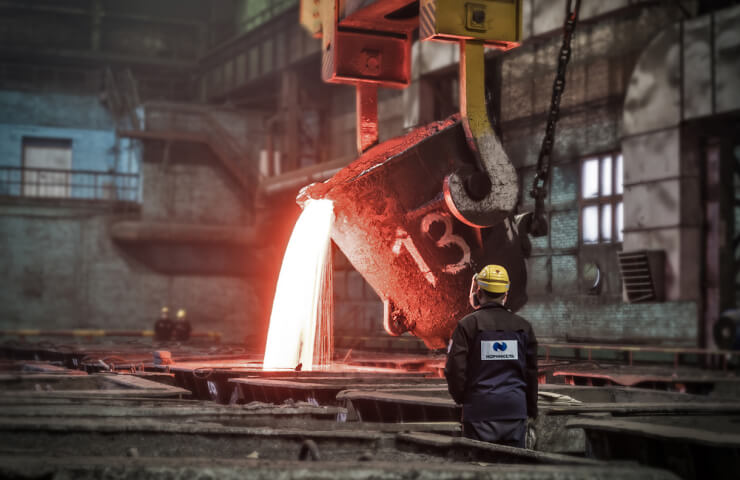Aluminum prices on the London Metal Exchange (LME) rose by 9.4% against the backdrop of new US and UK sanctions against Russia, and nickel prices by 8.8%, Bloomberg writes, citing data from the trading platform. The increase in copper prices turned out to be more restrained.
Jia Zheng, an analyst at Shanghai Dongwu Jiuying Investment Management, explains the rise in prices with fears that sanctions will reduce flows from Russia to Western markets.
Norilsk Nickel shares , "Rusala" and "Rusolovo" decreased at the beginning of trading on the Moscow Exchange on Monday by 1.9-3% on news about the LME ban on supplies of Russian non-ferrous metals after sanctions imposed by the United States and Great Britain.
Based on the results of the first minutes of trading, the price of shares of MMC Norilsk Nickel decreased by 1.9% (to 161.66 rubles per share), quotes for Rusal securities dropped by 2% (to 41.65 rubles per share), and shares of Rusolovo fell in price by 3% (to 1.2692 rubles per piece).
Russian copper, aluminum, nickel produced before April 13 can continue to be placed by British LME participants in authorized warehouses under new warrants. In relation to Type 1 warrants, UK exchange participants (brokers, traders) and their UK clients can continue normal trading activities, including withdrawing metal from LME warehouses.
Sanctions do not block bilateral contracts not related to LME, British officials explained to Reuters. They also expect that trading of Russian metal on the exchange will be carried out at a discount, and the situation will not lead to a restriction of supply on the market.
According to the consulting company CRU Group, Russia supplies about 6% of the world's aluminum volume, 5% nickel and 4% copper.
Russian authorities consider international sanctions illegal, ineffective and demand their lifting. Ambassador to the United States Anatoly Antonov called the new measures against Russian metal a politicized step and “indiscriminate shooting.”




